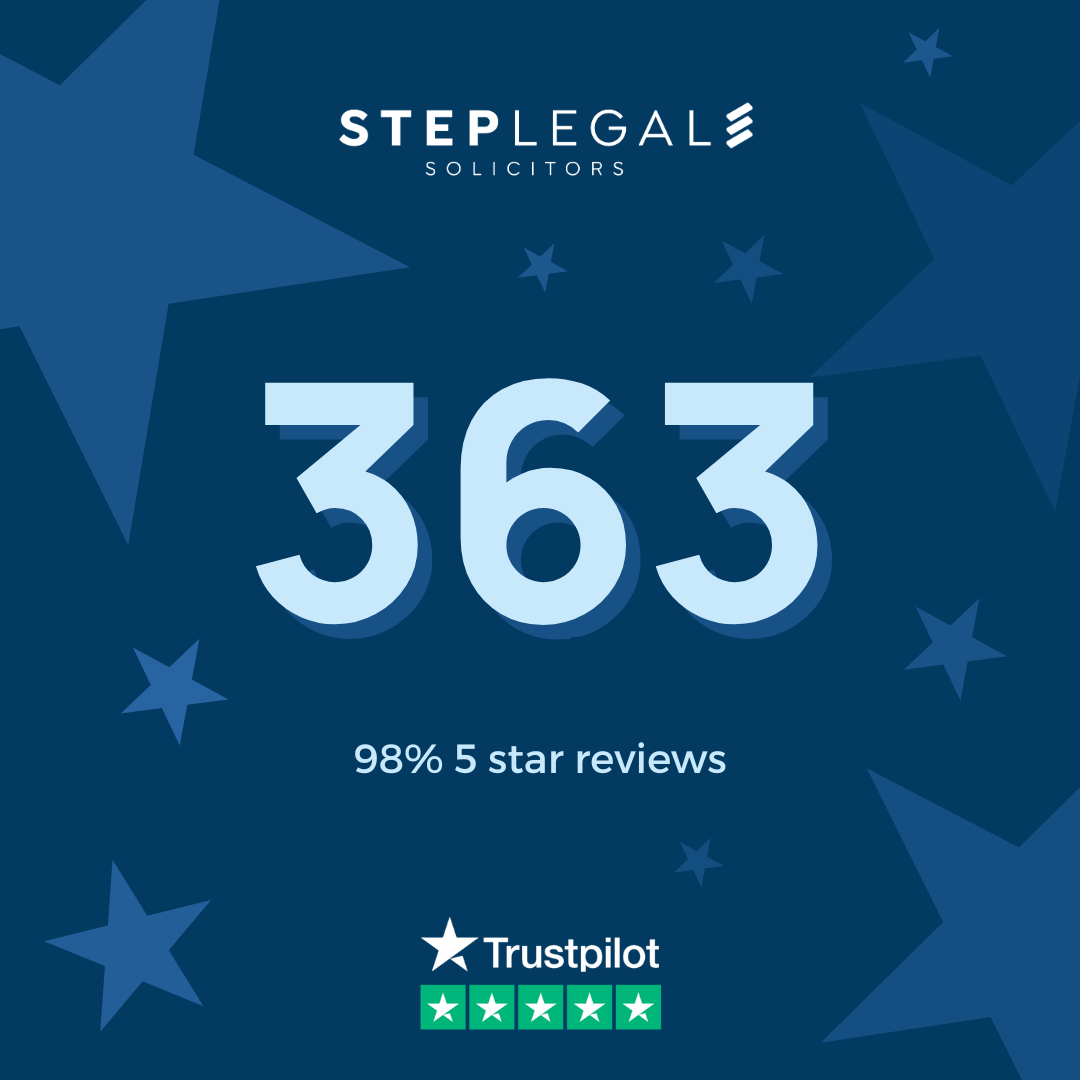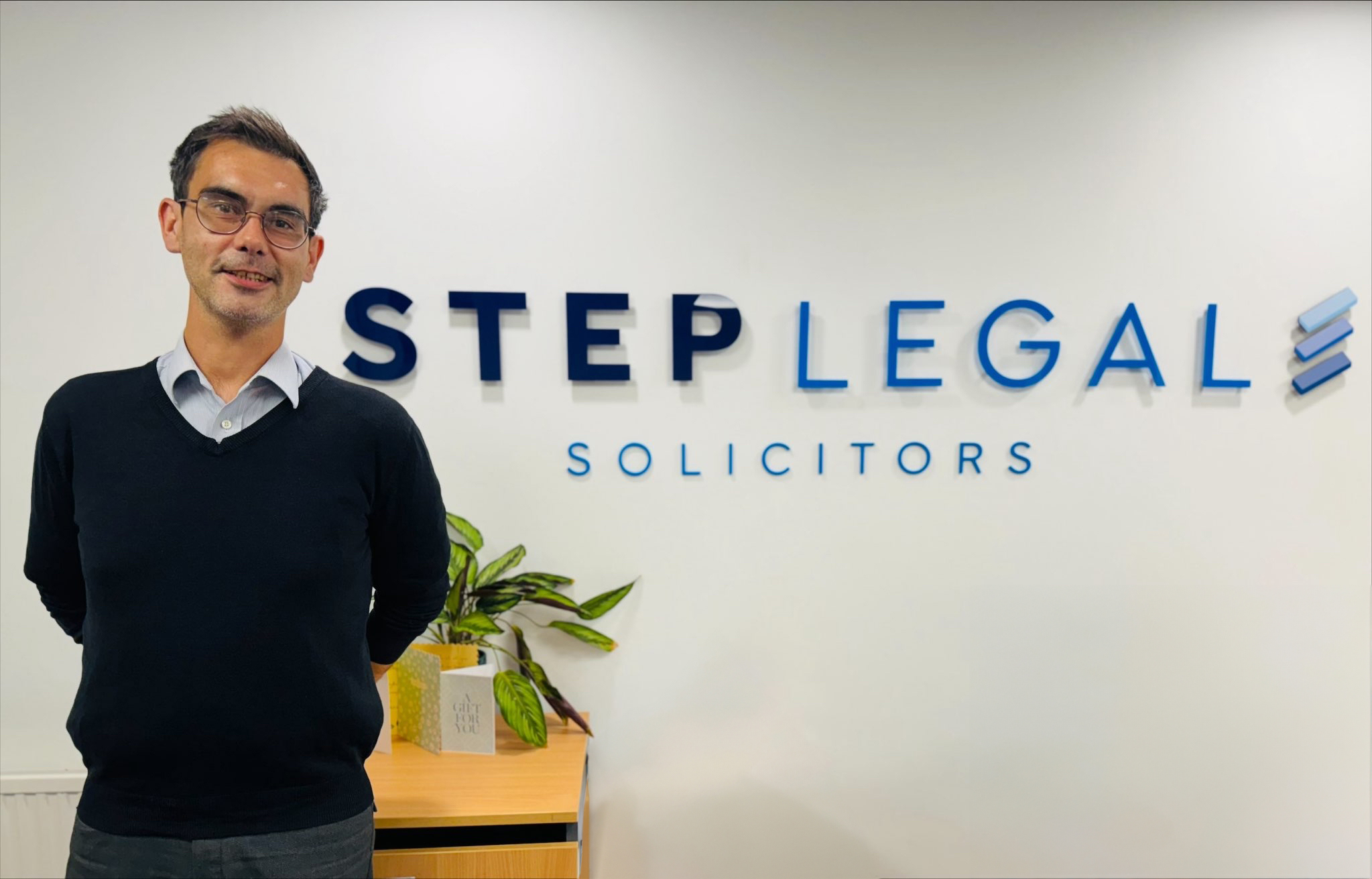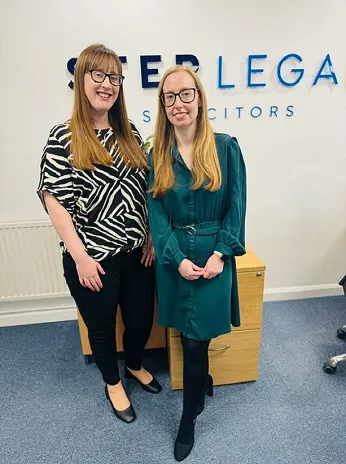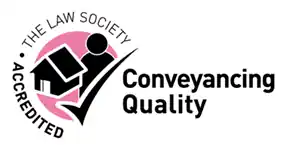
Claiming Compensation Following An Accident On A Construction Site
Construction workers are three times more likely to be killed or seriously injured than those employed in other sectors of the economy. Indeed, it is widely acknowledged that the construction industry is one of the most dangerous in the world and that construction sites in particular pose a substantial risk of harm, especially where appropriate health and safety measures have not been implemented or where they are not being fully complied with.
Your options where you have been injured on a construction site will vary depending on the circumstances, but where you can show that the cause of your injuries was down to negligence on the part of your employer, the owner of the site or someone else with a legal obligation to ensure your health and safety, then it may be possible for you to claim compensation.
How Step Legal can help
Our experienced accident at work lawyers can help you to recover compensation for a range of construction related incidents that result in personal injury, including those arising from:
- Falls from height, and particularly from ladders and scaffolding;
- Collapse of an excavation site;
- Defective equipment, including heavy plant and machinery;
- Failure of a safety belt or harness;
- Slips and trips, for example as a result of wet, slippery or uneven surfaces;
- Electrocution, e.g. caused by coming into contact with overhead power lines;
- Falling objects, such as dropped tools or improperly secured roof tiles;
- Exposure to chemicals, including carbon monoxide and silica, which is said to pose as much of a threat to construction workers as asbestos did prior to its ban in 1999;
- Exposure to loud noise, for example from drills and compressors;
- Use of vibrating tools, such as jackhammers or plate compactors; or
- Collisions involving forklift or dumper trucks.
Types of injuries that we deal with
Our expertise enables us to deal with cases involving a broad range of injuries and which vary in severity from the very minor to the catastrophic.
In particular, we are able to handle cases involving:
- Head and brain injuries;
- Spinal damage;
- Limb loss and amputation;
- Damage to internal organs;
- Broken bones and fractures;
- Sight and hearing loss;
- First to fourth degree burns;
- Tendon and nerve damage;
- Severe cuts and bruises; and
- Psychological trauma, including post-traumatic stress disorder.
We can also deal with claims involving the onset of recognized work related illnesses and diseases, known as industrial injuries, including:
- Occupational asthma;
- Mesothelioma;
- Chronic obstructive pulmonary disease;
- Occupational cancer;
- Occupational deafness;
- Heart disease;
- Organ failure;
- Contact dermatitis;
- Tinnitus; and
- Hand arm vibration syndrome (vibration white finger or carpal tunnel syndrome).
Where an accident on a construction site has resulted in death, we can also support you in bringing a fatal accidents claim and provide representation if required at an inquiry.
Size of compensation payout
The amount of compensation that we can seek on your behalf will depend on the circumstances in which the accident occurred, how severely you or your loved one have been hurt and what the long term consequences of your injuries are likely to be.
In our experience awards can vary from a few thousand pounds for very minor injuries from which you can be expected to make a full recovery in a relatively short period of time, to tens or even hundreds of thousands of pounds for more serious injuries that are likely to have permanent and potentially life changing effects.
What you can claim for
In every case you will be able to claim for the physical pain and suffering that your injury has caused, together with any verifiable mental anguish or psychological harm that you have suffered, e.g. as a result of flashbacks and the onset of anxiety or depression.
In addition, you will be able to claim for any accident related expenses that you have had to incur, such as prescription charges and travel costs to and from hospital appointments, and for any financial damage that you have or will have to bear, including:
- Loss of past and future earnings;
- Loss of a benefits package offered as part of your job;
- Payment of private medical bills to cover treatments and rehabilitation therapies not readily available on the NHS;
- Purchase of mobility aids and prosthetics;
- Payment for home or vehicle adaptions; and
- Payment of residential care home fees.
For further information, please see our guide on how personal injury compensation is calculated.
Timescales for settlement
The length of time it takes to deal with a compensation claim will be heavily influenced by whether the person we say is responsible for your injuries is prepared to acknowledge that they are at fault, and whether they agree with our calculations as to the amount that you are due.
Sometimes it is possible for claims to be settled within a matter of months and without the need to go to court. In other cases, the process may be slower and require one or more attendances before a judge.
However, do not let the prospect of a claim taking a longer period of time put you off seeking the compensation that you deserve, as we will be there to support you every step of the way. We can even help to secure you an advance of your compensation where liability in respect of your injuries is admitted – known in legal terms as an interim payment – and which can be used to tide you over financially while you wait for your claim to be settled and to pay for things like private medical treatment, physiotherapy, occupational therapy and counseling.
What you need to prove
To bring a claim you need to be able to show that an injury has occurred because someone who was responsible for ensuring your health and safety failed to do all that they could reasonably be expected to do in order to protect you from any foreseeable risk of harm.
What can reasonably be expected will vary from case to case, but will usually include:
- Carrying out thorough and regular risk assessments;
- Implementing appropriate safety measures;
- Ensuring all plant, machinery, equipment and tools are in good working order and free from defects;
- Ensuring scaffolding is properly erected and that safety fences are installed;
- Issuing workers with any necessary personal protective equipment;
- Providing in-house or external training on safe working systems;
- Addressing known risk factors highlighted by prior accidents or near misses; and
- Ensuring compliance with all relevant health and safety regulatory requirements.
Before proceeding to make a claim it is essential that you seek advice from a construction law expert as your rights of protection and recourse may differ depending on whether, at the time of the accident, you were on site as an employee, a sub-contractor, a self-employed labourer or trades person, a professional consultant or an agency worker.
Time limit for making a claim
Most compensation claims must be brought within three years of an injury being sustained or, in the case of industrial injuries which may not become apparent for a very long time, within three years of you realizing that an injury had occurred.
However, there are exceptions to the general three year rule, including where:
- You are making a claim on behalf of someone under the age of 18 and who was, for example, injured while on work experience or undertaking an apprenticeship, in which case a claim can be brought at any time up until they turn 21;
- You are making a claim on behalf of someone who has become mentally incapacitated as a result of the accident, e.g. because they have suffered a massive brain injury, in which case no time limit applies; or
- You are making a claim on behalf of someone who has died, in which case the claim must usually be brought within three years from the date of death.
Need more information?
If you think you may be entitled to compensation following an accident on a construction site, then please call us now on 0800 1956412 and ask to speak to Abid Hussain or Anna Rushton who are our specialist accident at work lawyers.
Free, no risk advice
We offer a free initial consultation to determine whether a claim may be possible and, where it is, we can usually act on a no win, no fee basis so that you can proceed without any upfront costs and with no liability to pay us anything unless your claim is successful. We also offer a free Polish translation service should you need it – just contact our in-house interpreter Agnieszka Kulas.
















